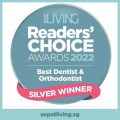We all know eating sugar is detrimental to oral health, but there are several other things that can adversely affect your dental health.
Carbohydrates and Acid
Excessively sugary drinks and candy are the traditional villains in the fight against tooth decay, yet virtually all fermentable carbohydrates provide less than ideal conditions for the teeth. Foods including breads, breakfast cereals, snack bars and sports drinks also contain hidden sugars which can create an acidic oral environment promoting tooth decay. It is important to check the label when purchasing processed or packaged foods due to the addition of sugars by manufacturers. Sticking to natural and unprocessed foods and beverages can help prevent tooth decay.
Alcohol
Drinking moderately is well known to be better for general health than excessive consumption. Alcohol is also a contributor to some oral health conditions due to its acidic nature. There can be alcohol based ingredients present in some medicines and pharmaceutical products. This is especially true for cough medicines in the form of syrups which contain both alcohols and sugars. In addition, certain mouthwash brands have alcohol as the primary ingredient which can be problematic for patients with increased risk for tooth decay. Alcohol based oral rinses make your saliva and oral environment more acidic and can cause dry mouth which leads to the growth of Strep mutans, the bacteria causing tooth decay.
Speaking of Dry Mouth…
Dry mouth or xerostomia may be caused by prescription medications, smoking, genetics or medical conditions such as autoimmune disease, diabetes or alcoholism. Saliva protects the mouth by neutralizing harmful acids but dry mouth contributes to lower salivary pH or a more acidic environment, causing bacteria to thrive. If you notice symptoms of dry mouth, talk to your dentist about the possible causes and treatments for this condition.
Grinding and Clenching
Clenching and grinding of the teeth while asleep or awake is referred to as ‘bruxism’. This sleep disorder can lead to pain as well as worn, cracked teeth, headaches and earache. Injectables, retainers and other appliances may be used to reduce clenching and grinding of the jaw. Relaxation and mindfulness can also be practiced to reduce this disorder.
Deep Crevices and Weak Enamel
Weak enamel, grooves and crevices in teeth from previous damage can provide the ideal hiding places for bacteria and plaque to grow and do damage. These grooves and crevices can be a result of genetics, tooth wear or compromised previous restorations. Often, sealants can be used to help protect these areas from bacterial colonization. In other cases, a new restoration may need to be fabricated to keep the tooth structure sealed and intact. If you notice any areas of sensitivity or discomfort on your teeth, always notify your dentist as soon as possible.
New Fads in Oral Care
Recently, a number of new fads have emerged that are touted as the best way to care for and even treat teeth and gums via detoxification and remineralization, even claiming to reverse damage.
Some of these new ideas include:
Oil pulling:
One blogger describes, “kavala” or “gundusha” ‘as an ancient Ayurvedic dental technique that involves swishing a tablespoon of oil in your mouth on an empty stomach for around 20 minutes. This action supposedly draws out toxins in your body, primarily to improve oral health but also to improve your overall health.’
Charcoal Whitening and Remineralising:
This involves introducing a charcoal paste directly onto your teeth which is supposed to “invisibly whiten and remineralise teeth, strengthen gums, remove toxins from your mouth, and absorb heavy metals all while removing stubborn stains including coffee”. The products also claim to assist in changing pH and health of the mouth by “effectively killing bad bacteria present in tooth decay and gingivitis”.
What do the experts say?
According to Dr Maria Raskina of Expat Dental at Novena Medical Centre, while there is nothing harmful about any of these new products or theories there is no scientific evidence to support their efficacy as replacements for visiting the dentist or a proper oral care routine. The best way to maintain the health of your teeth and gums is with preventative oral care, hygiene and good nutrition.
What should you do?
The most effective way to prevent dental decay and gum disease and achieve good overall health is via good nutrition and oral hygiene. A balanced diet of fruit, vegetables, protein and carbohydrates, coupled with a thorough brushing and flossing routine will help you maintain a healthy smile.
Regular check-ups with your hygienist and dentist will ensure that any potential problems are identified and corrected before they become unmanageable. If you haven’t been to a dentist in a while we would be happy to help you with your oral health and advise on any areas of concern. Contact us at expatdental.com or call on +65 6397 6718. We have extended hours on weeknights and provide comprehensive care for all members of your family.
#singaporedentist #expatdental #expatsinsingapore #expatlife #dentalcaresingapore #dentistnovena







